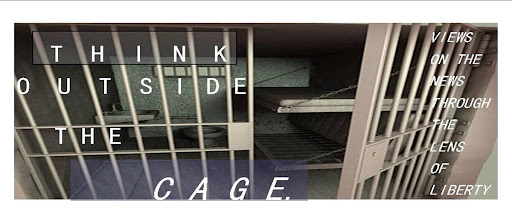Pronounced Herbert:
"While racial discrimination is overwhelmingly directed against black people in the U.S., much of the nation and the media are poised to go berserk over the most specious allegations of racism against whites."
Perhaps in some other solar system — but on planet Earth, allegations of racism against whites by blacks or other minorities rarely receive significant mainstream media coverage, if any.
As proof that blacks are the ultimate victims, Herbert offers: "Even the N.A.A.C.P. rushed to condemn Ms. Sherrod, calling her actions 'shameful,' without bothering to seek out the facts — which, incredibly, had unfolded at an N.A.A.C.P. event!"
This, Herbert claims, prove that everything's stacked against us poor blacks. Even "our" own organization's turned against us!
A more realistic read on it is that the NAALCP was trying to back away from their recent ill-considered, intemperate and false charges painting the Tea Party movement as a bunch of white racists — part of the Obama Left's political strategy to avoid discussing real issues. Realizing their remarks made them look like racist extremists themselves, the NAALCP chose to reel to the other extreme to "prove" that they weren't. However, in so doing, they failed to check their facts — and ended up with more egg on their face.
"Black people," Herbert continues, "are in a terrible condition right now — economically, socially, educationally and otherwise — and there is no effective champion fighting for their interests."
Someone should hand Herbert the news flash. Lots of people are in a terrible condition right now. There is no effective champion fighting, really, for any oppressed, dispossessed or disadvantaged people. The Tea Partiers, as best they know how, are trying to stand up for the middle class and those aspiring to it. But for their troubles, they get slandered as racists and haters.
The sooner we (black people) get over ourselves, begin identifying with the human race and realize that we're not the only people suffering these days — indeed, not the only people to have suffered at any time — the sooner we will be on the road to real solutions. We need to be part of the greater society, not segregate ourselves into some special victim category. We must adopt an attitude of solidarity, not solipsism.
Official racism, yes, has left its mark on the black community. Arguably, however, pandering, paternalism, and seeking refuge in victimhood and the smothering arms of big government have had far more devastating consequences than anything — segregation, lynchings, even slavery. The black family and community were far more cohesive in the Deep South during the Depression era than in the decades since the Great Society. The black community's failures can no longer be blamed on racism without a refusal to acknowledge the epochal progress our society has made, and a refusal to face responsibility for ourselves, our families, our churches and our communities.
The economy is broken. The black community does suffer the lingering residual effects of past racism, but those effects are socioeconomic, as are the solutions. Yet even in light of that fact, racial politics is not the solution. Vilifying others doesn't advance our cause — though it does keep the mis-leaders who foment and exploit such division in power and in the lifestyle to which they have become accustomed.
As if to make my point, Herbert writes unironically:
The point that Ms. Sherrod was making as she talked in her speech about the white farmer who had come to her for help was that we are all being sold a tragic bill of goods by the powerful forces that insist on pitting blacks, whites and other ethnic groups against one another.
What is the blame-white-people rhetoric Herbert engages in, but rhetoric that pits blacks and whites against one another? How does libeling an entire race by accusing them of "rampant racism" help to overcome divisions?
Herbert speaks of a "toxic agenda of those on the right whose overriding goal is to foment hostility and hate." He had better start looking closer to home and expunging the toxicity within his own heart. Herbert strikes me as one of many in the "civil rights generation" who has not yet grown up. That is, they haven't let go of the past. In their minds it is still 1960. They refuse to acknowledge the vast progress that has been made. As Jesus castigated the sanctimonious scribes and Pharisees, whom he called blind guides and hypocrites:
"Ye shut up the kingdom of heaven against men: for ye neither go in yourselves, neither suffer ye them that are entering to go in."
No matter how much lip service the civil rights mis-leaders of Herbert's generation give to racial reconciliation and peace, their actions and divisive rhetoric show they neither want peace nor do they want the rest of us to enter into it. Unsuited to the battles of the present, they insist on reenacting the battles of the past.
Meanwhile, they miss the real heart of the problems afflicting the black community. In that sense they remind one of C.S. Lewis' The Screwtape Letters, where the senior demon instructs his young protege in the dark arts of deceiving men:
The use of Fashions in thought is to distract the attention of men from their real dangers. We direct the fashionable outcry of each generation against those vices of which it is least in danger and fix its approval on the virtue nearest to that vice which we are trying to make endemic. The game is to have them running about with fire extinguishers whenever there is a flood, and all crowding to that side of the boat which is already nearly gunwale under.For this very reason, philosophers have observed, real social progress often isn't made until the older generation just dies off. Like fashions in dress, old fashions in thought die hard among those used to wearing them.

No comments:
Post a Comment